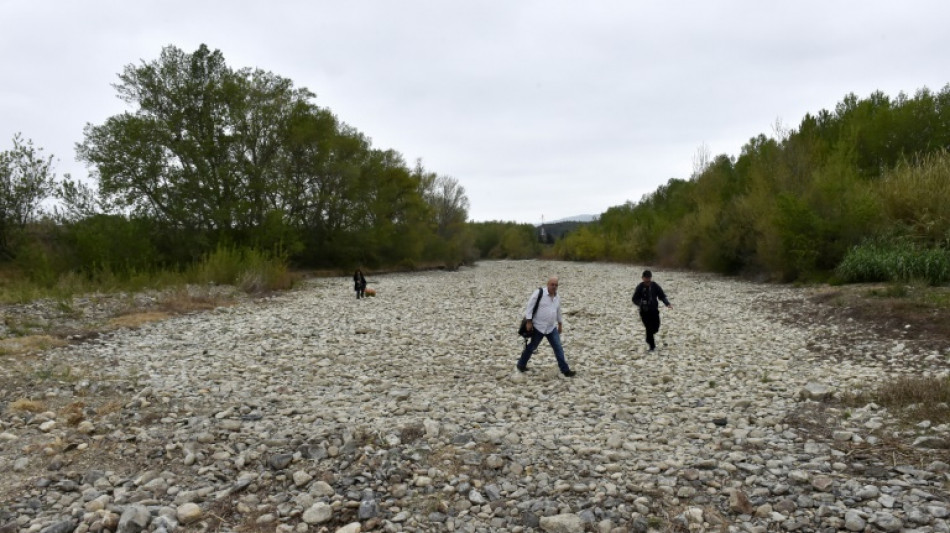France badly hit by climate change and ill-prepared: report / Photo: RAYMOND ROIG - AFP
France is being badly hit by climate change, is not prepared for its effects and is failing to sufficiently reduce its emissions, an independent climate body warned Wednesday.
The record heat and exceptional drought seen last year have had "serious impacts in France," and are more than the current prevention and crisis management systems can cope with, the French High Council for the Climate (HCC) said in its annual report.
The Western European country recorded temperatures at 2.9 degrees Celsius above the 1991-2020 average, according to the report.
"We're lagging behind," the group's president and climatologist Corine Le Quere told AFP, calling on the government to get out of its reactive mode and come up with a pre-emptive and "transformative" adaptation strategy.
Agriculture has been badly hit, with crop yields down 10-30 percent, while the drought conditions have meant "virtually no reproduction" of some amphibians and "low or abnormal reproduction" of waterfowl.
Tensions over drinking water have affected more than 2,000 municipalities, while 8,000 others have requested recognition as "natural disasters" due to the drought, which is causing cracks in buildings as a result of the shrinking and swelling of clay soils, the report said.
Meanwhile the health system recorded "2,816 excess deaths in 2022," the HCC added.
The report also said France was ill-prepared to fight forest fires and has been forced to call in reinforcements from abroad.
And these effects are just set to intensify as climate change progresses.
Last week a report by the World Meteorological Organization and the European Union's Copernicus Climate Change Service, said that Europe is the world's fastest-warming continent, some 2.3 degrees Celsius hotter last year than in pre-industrial times.
The continent, which has been warming at twice the global average since the 1980s, saw its warmest summer on record last year, with countries including France, Germany, Italy, Portugal, Spain and the United Kingdom experiencing their warmest year on record.
France has committed to reducing its emissions by 40 percent by 2030, compared with 1990 levels.
This goal needs be strengthened to take account of new European targets of 55 percent, said Le Quere.
The HCC is calling for a "far-reaching economic policy" requiring public and private funding of "the order of 30 billion euros per year between now and 2030" to decarbonise the economy, giving priority to transport, the largest emitting sector.
"This means that all the tax loopholes that finance fossil fuels must be abolished, with a fixed timetable", the HCC president said.
F.Varghese--BD
